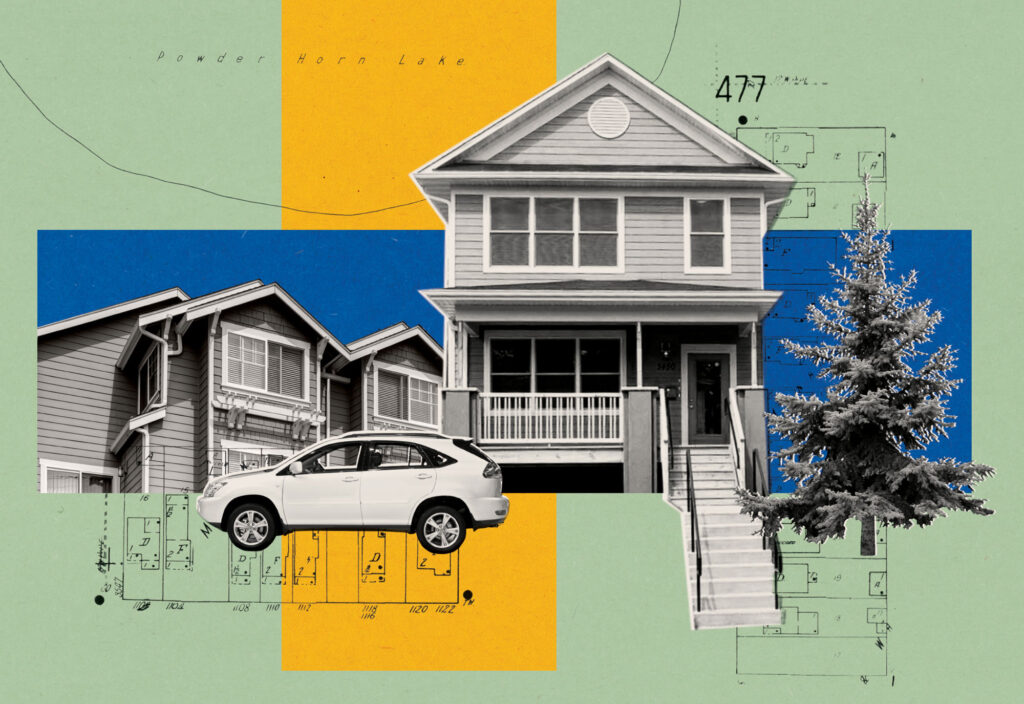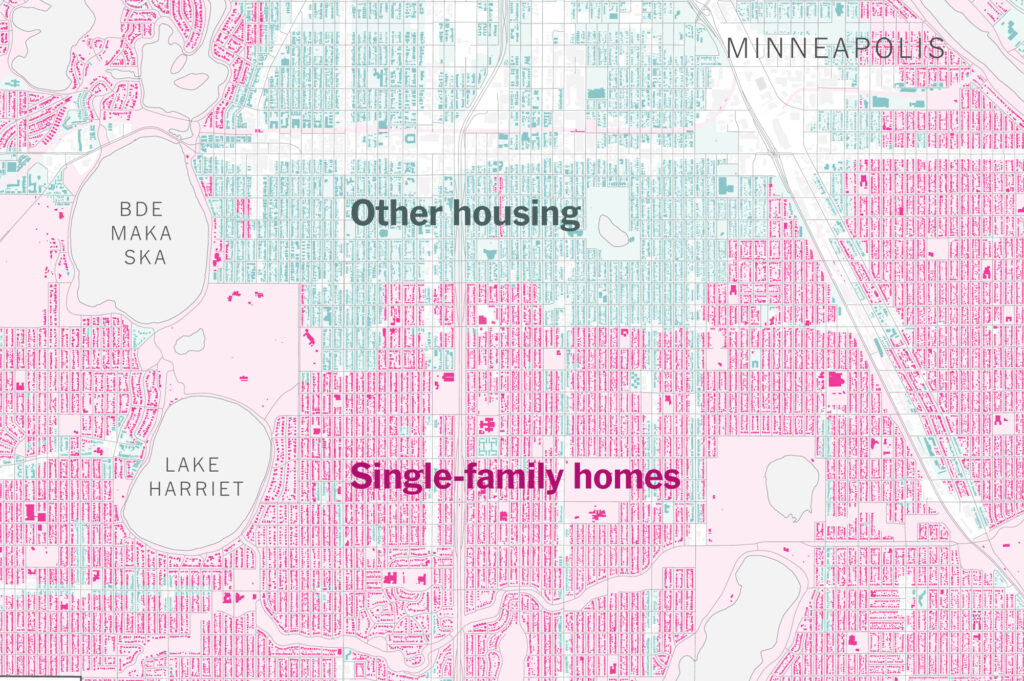THE SEGREGATIONIST HISTORY OF
SINGLE FAMILY HOME ZONING
Minnesota has long been one of the most segregated states in the country due to many policies historically enacted to prevent racial integration in Minneapolis neighborhoods. Now, a new piece of proposed legislation in Minneapolis threatens to undo the work put in to desegregating the city.
5/11/2023
By Jack Gaillard
Image Source: Inman News
Back in 2018, Minneapolis became the first major city in the U.S. to eliminate single family home zoning. This landmark decision allowed for the creation of middle housing, like duplexes and triplexes, in these areas and added the capability for better racial integration in these neighborhoods. However, the city’s new proposed legislation, which bans investors from buying and renting these properties, will not necessarily increase minority homeownership in these segregated areas, especially when considering the large difference in homeownership rates by race across the state.
It’s easy to understand the appeal of the idea. But one must think through the ramifications of effectively banning not just investors, but the people they rent to — many of whom could not otherwise live in a single-family neighborhood.
Salim Furth

Image Source: Builder Magazine
Opponents of the Minneapolis 2040 Plan, which allowed for the development of mixed housing in the formerly single-family zoned areas, adopted some of author and activist Jane Jacobs’ ideology in their pushback against development in their neighborhoods. Their concerns included questions about the overall environmental impact of the project, as well as whether or not the character of their neighborhoods would be lost with single family homes replaced by looming apartment buildings. Her prioritization of people over development was an important part of creating a new approach to urban planning, but with so much of Minneapolis zoned for single-family housing, another idea of how to create more racial integration in the city through urban planning was necessary.

Image Source: The New York Times
Urban planners agree that single-family home zoning is exclusionary, inaccessible, worsens issues of inequality, and in some cases even contributes to housing shortages. With research showing that development of middle housing and multifamily housing can promote racial integration, there is an obvious solution to the issue of segregation in American cities. Addressing racial integration in Minneapolis neighborhoods can also help provide solutions for increasingly segregated schools and give better opportunities to kids and changing outcomes later in life.
Segregationist policies across the country continue to influence ideas in urban planning and decisions made regarding the way we live today. The effects of harmful policies like redlining still perpetuate systemic inequalities that disproportionately influence outcomes in a person’s life. Responses to single-family home zoning policies and their effects, like the new proposed piece of Minneapolis legislation, won’t always work to dismantle issues that prevent racial integration in neighborhoods and create differences in accessibility to resources and opportunities. Through examination of the real effects of policies, we can work to gain a better understanding of the impacts these decisions have and create necessary change.

Image Source: The Wellin Museum of Art